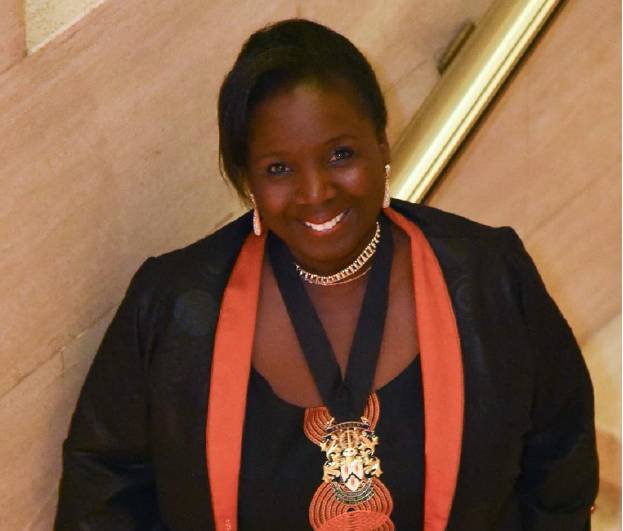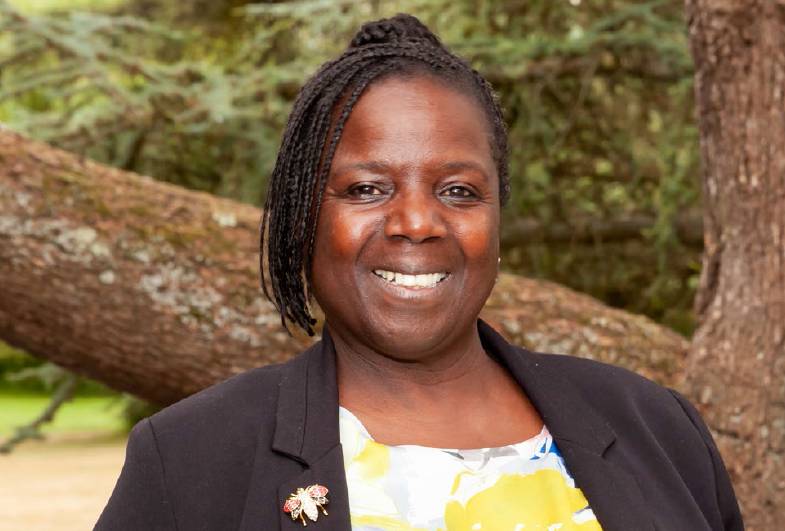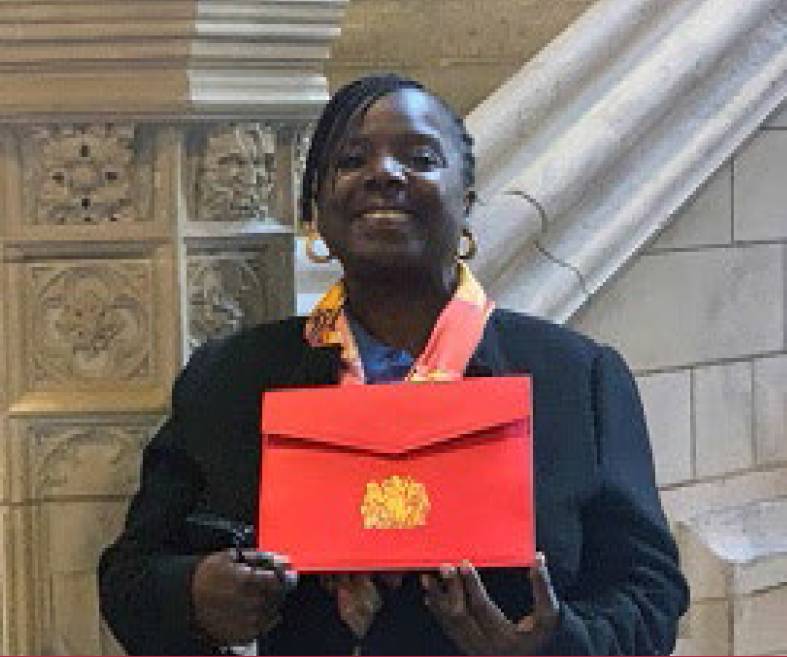Millicent Grant
Millicent Grant FCILEx QC (Hon):
how I shattered the glass ceiling
Millicent Grant, the first Chartered Legal Executive to be appointed an Honorary Queen’s Counsel, spoke to CILEx Journal about her professional and personal life.
I am most proud of becoming the first non-white President of a legal professional membership organisation in the UK. It is an achievement I was elected to fulfil
Journey into the law
 Having decided I wanted to qualify as a legal executive, I had to meet the then ILEX’s requirement to be working in a law firm at the same time as studying. There were two options open to me: becoming an outdoor clerk or becoming a secretary.
Having decided I wanted to qualify as a legal executive, I had to meet the then ILEX’s requirement to be working in a law firm at the same time as studying. There were two options open to me: becoming an outdoor clerk or becoming a secretary.
As I had taken a secretarial and office practice course during my last year at school and had some qualifications, I chose the secretarial route which, for me, was the better option.
At the Law Society, in Chancery Lane, there was a ‘registry’ of sorts. This consisted of two folders: one containing details of those seeking work and the other containing details of vacancies. This is where I started my search and made applications in response to the vacancies advertised. I did not define myself or limit my potential by feeling I had to adhere to the expectations others may have had of me based on my background. I did the necessary research, securing three job offers before I left school.
Family life
I was brought up in south London with my two sisters. My father lived abroad during my teens and part of my childhood. He died when I was in my 20s. He too was involved with his community and was part of an organisation that developed and supported young men. We are a close-knit family, with a network of extended family and friends and neighbours. I attended a church close to where I lived and had a close-knit circle of friends and families. The youth group I was part of had strong positive support from our youth leaders.
As a youth group, we took responsibility for our own programme and development and, with the support of our leaders, reached out to the community and arranged, and took part in many types of events and activities, including coffee bars and concerts. Those leaders have reproduced themselves in us, and the board I now chair has many members who I grew up with.
Inspiration and ambition
My initial inspiration was a photograph of my uncle in his barrister’s wig and gown, which hung on a wall in my home. It was a powerful image for a young child, and set aspirations in me at an early age. He came to England to join the RAF during the Second World War. When the war ended, he qualified as a barrister and then migrated to Nigeria, where he set up a law firm and practised until his retirement. He took an unexpected route for someone who grew up in Kingston, Jamaica. I only met him on one occasion when I was growing up, when he visited England for a holiday.
 Shortly before my inauguration as President of CILEx, I learned that my uncle had acted in a significant case that later changed British law. As a result, he was invited to address the Law Lords in parliament.
Shortly before my inauguration as President of CILEx, I learned that my uncle had acted in a significant case that later changed British law. As a result, he was invited to address the Law Lords in parliament.
